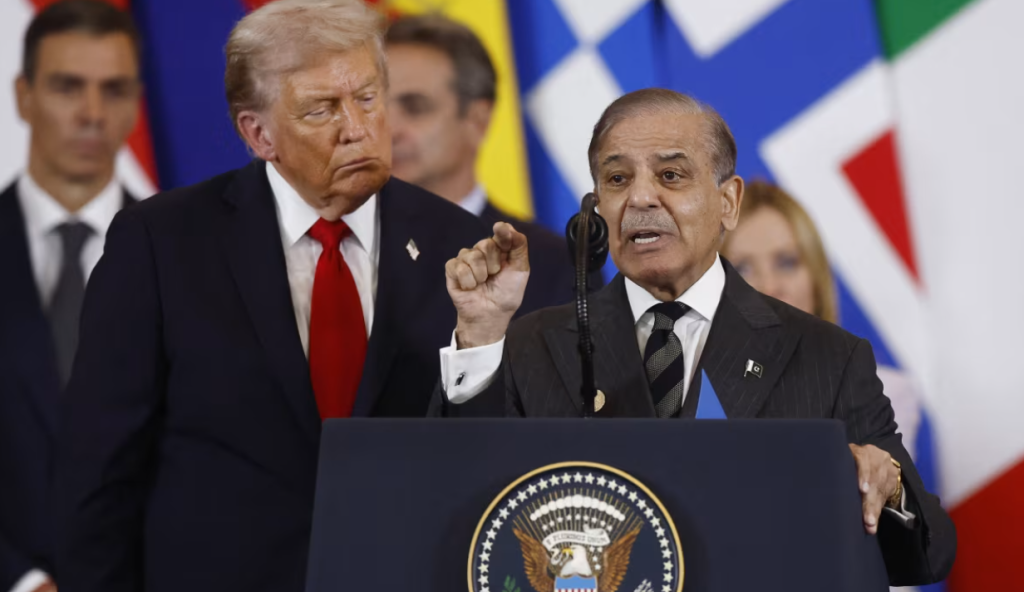In an era of shifting alliances and transactional diplomacy, Pakistan has emerged as an unlikely success story in managing its relations with U.S. President Donald Trump 2.0, combining strategic resources, deft negotiation — and a touch of flattery.
During the Gaza ceasefire summit in Sharm el-Sheikh, Trump publicly praised Pakistan’s top military commander, calling him his “favorite field marshal.” He then invited Prime Minister Shehbaz Sharif to the podium, who reciprocated with glowing words — even announcing that he would nominate Trump for the Nobel Peace Prize once again.
Scenes like these were unimaginable just a year ago. Under previous U.S. administrations, Washington had kept Pakistan at arm’s length due to political instability, allegations of extremism ties, and deep Chinese alignment. Former President Joe Biden never called either of Pakistan’s two prime ministers during his term and had branded Pakistan “one of the most dangerous nations in the world” after the 2021 Afghanistan withdrawal.
Trump’s return to office, however, has rewritten America’s diplomatic playbook. Old alliances have cooled, and former rivals are finding new inroads — if they have something of value to offer.
And Pakistan seems to have offered exactly that: preferential access to rare earth minerals not controlled by China, along with a steady dose of personal diplomacy and public praise.
In return, Islamabad has secured a fresh consignment of U.S.-made Raytheon missiles, softer tariff terms than neighboring India, and repeated White House invitations without the public scolding other world leaders have endured.
At home, this new chapter in U.S.–Pakistan relations is being hailed as a foreign policy triumph, while in New Delhi, it has sparked anger — especially as India faces higher tariffs and diplomatic frost for its continued reliance on cheap Russian oil.
Analysts say Pakistan’s approach reflects a new realism in diplomacy — one that blends humility, opportunism, and pragmatism to navigate Trump’s transactional world order.



